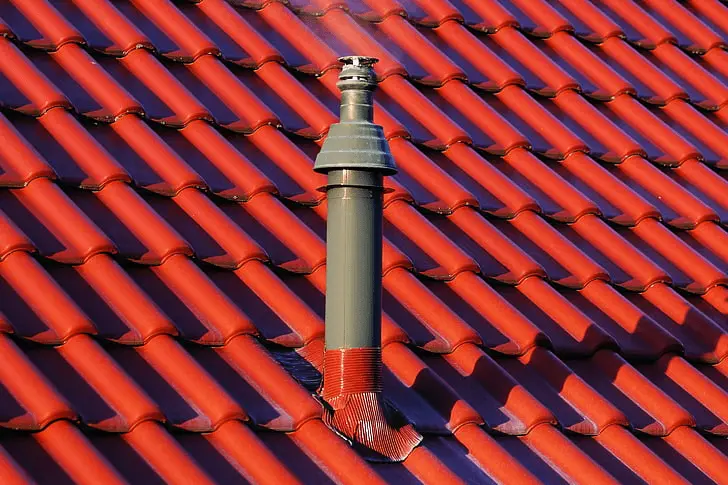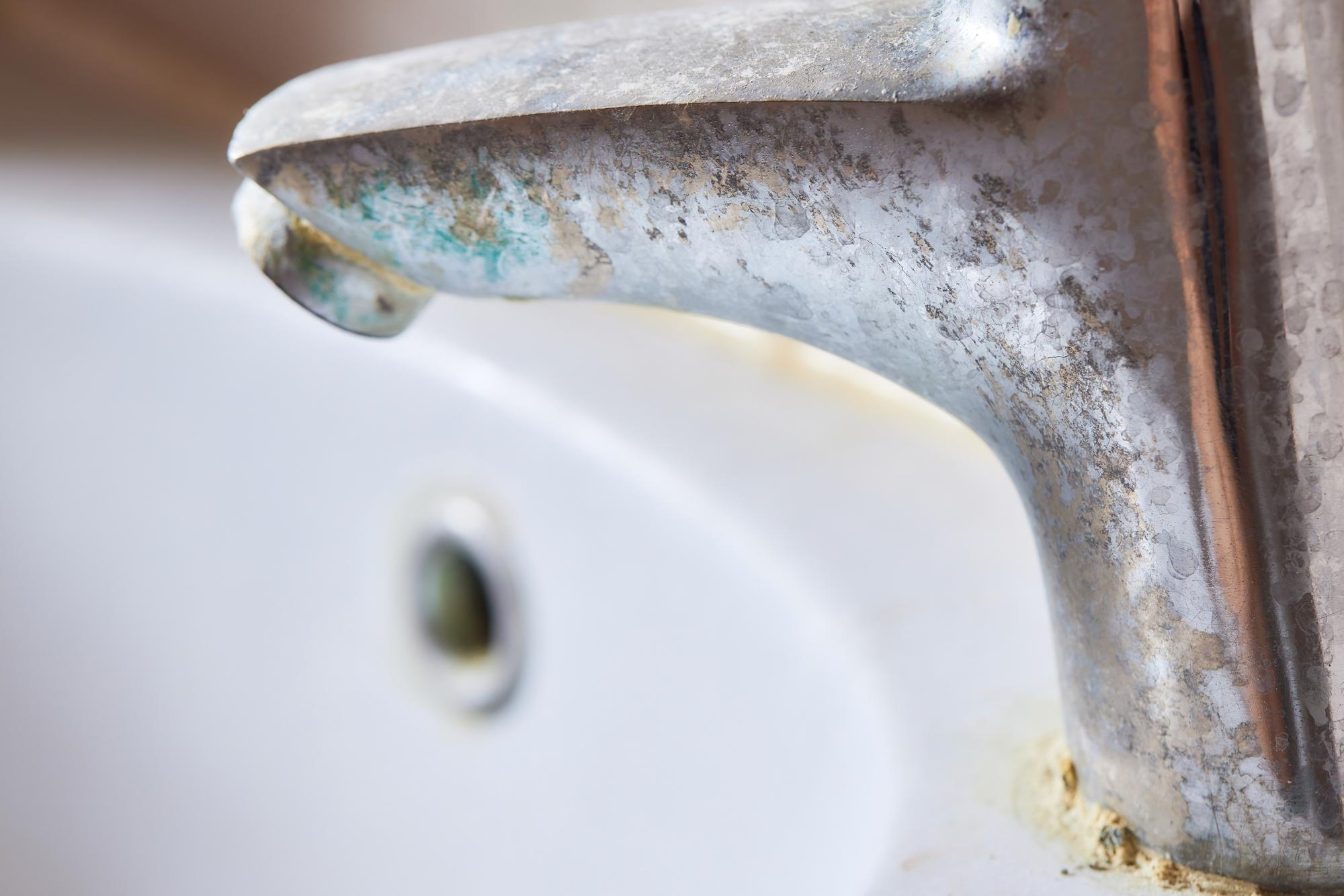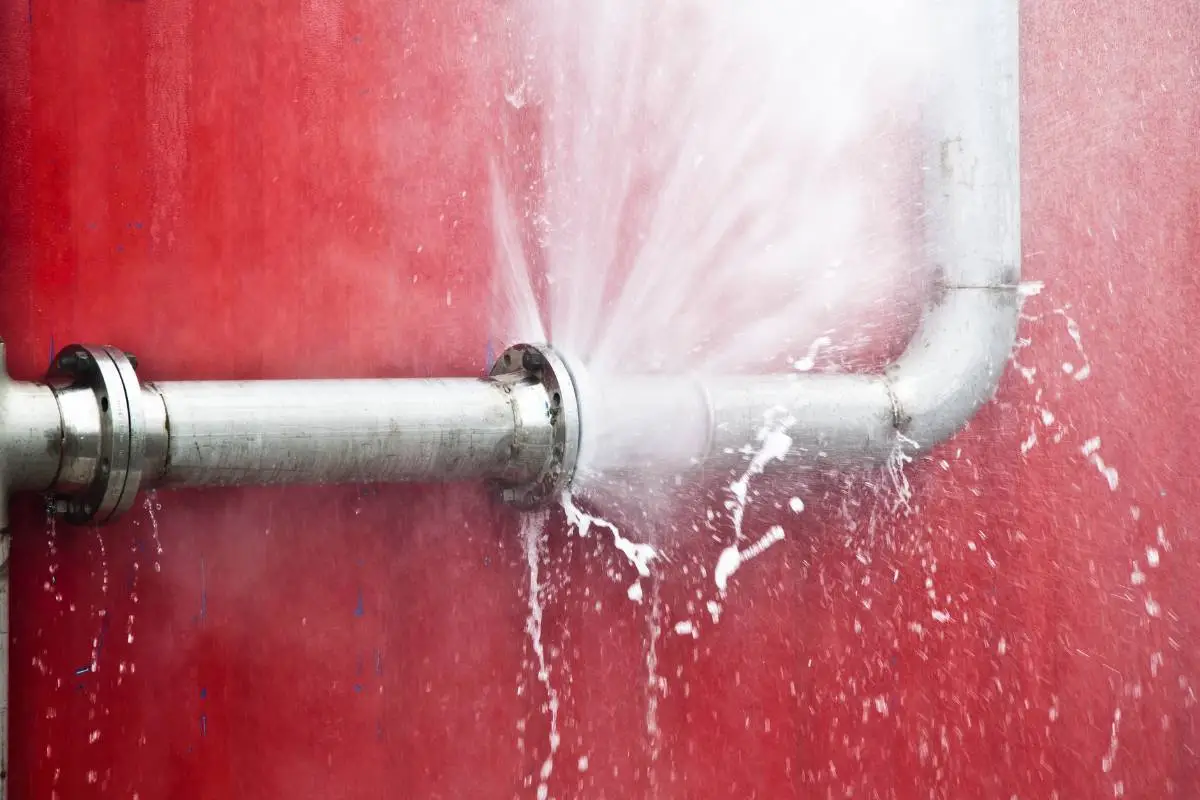
Out of nowhere, you hear it—a strange hissing noise coming from behind the wall. Before you know it, a burst water pipe in the wall has turned your peaceful evening into a frantic dash for towels and a phone call to the nearest leak detection service.
When a pipe bursts, it doesn’t just cause a mess; it can quickly escalate into a full-blown disaster if not addressed promptly. But don’t worry—understanding how to fix the issue will save you from a lot of stress and costly repairs.
Let’s go!
How to Fix a Burst Water Pipe
When a water pipe bursts in your house, it’s essential to act fast to prevent further damage. Fixing a burst pipe can be challenging, but with the right steps, it’s often manageable. Here’s how you can handle it:
1. Find the Source of the Leak
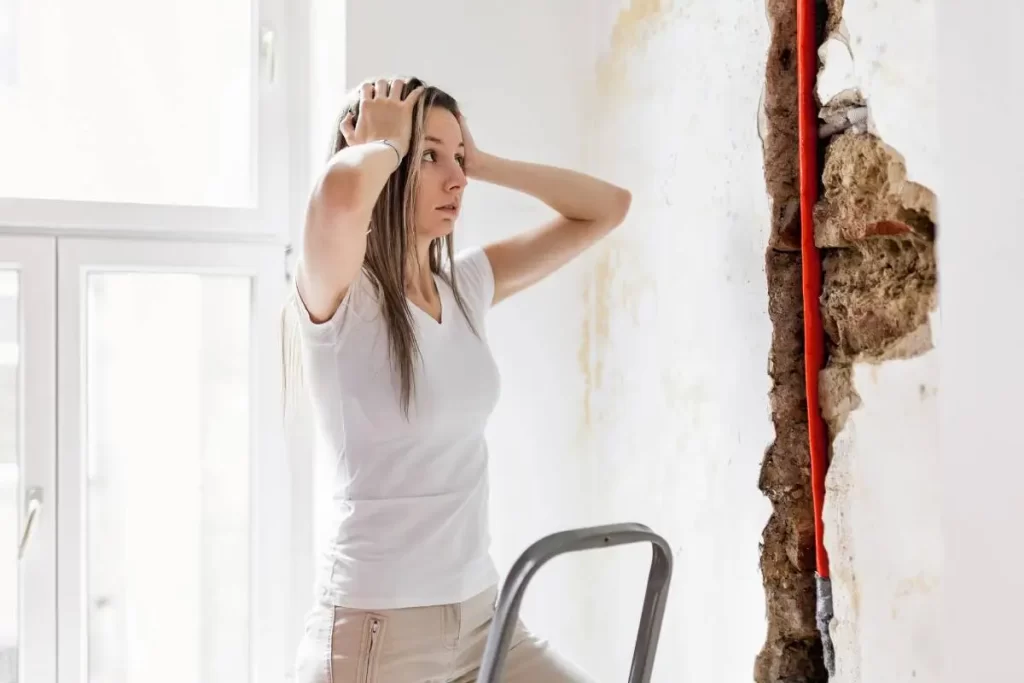
The first step is to locate the source of the leak. Sometimes, the location of the water pipe burst is obvious, but other times it’s hidden behind walls or floors, making it difficult to find.
This is why you need a leak detection service—professionals have the tools to accurately pinpoint the leak without causing unnecessary damage to your home. However, if you can easily spot the leak, you may be able to fix the issue yourself.
2. Solder Two Couplings
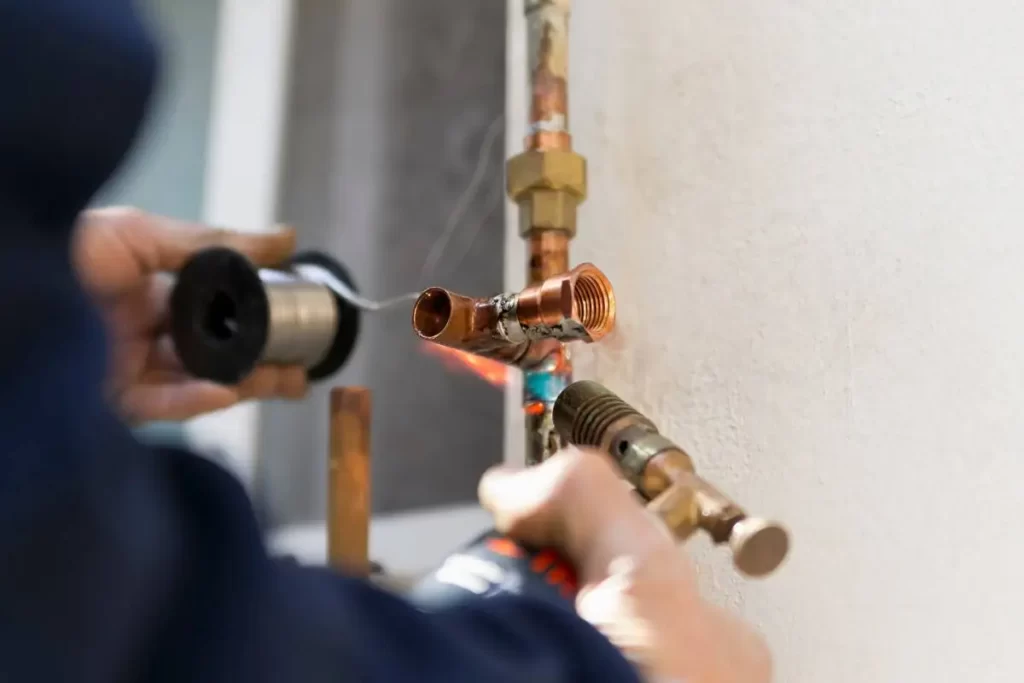
Once you’ve located the leak and determined that it’s accessible, you can repair the burst pipe by cutting out the damaged section. Start by using a pipe cutter to remove the burst portion.
After cutting, deburr the pipes by smoothing out the rough edges to ensure a clean fit. Next, solder two couplings onto the ends of the cut pipe. This involves heating the pipe and applying solder to create a strong, watertight connection. This method is ideal for small, isolated bursts.
3. Create Compression Couplings
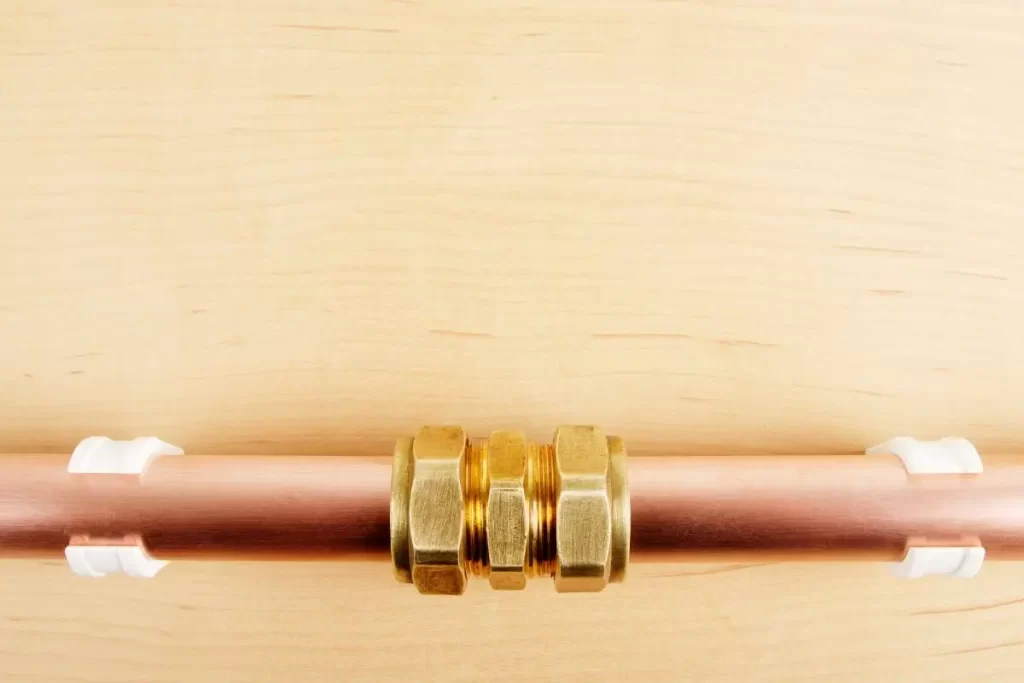
If soldering isn’t your preferred method or the burst is in a difficult-to-reach spot, you can use compression couplings instead. To do this, you’ll need two wrenches, a compression fitting, a sleeve, and a retainer nut. Begin by sliding the sleeve and retainer nut onto the pipe.
Apply some pipe dope to the sleeve as a sealer, then position the compression fitting over the break. Finally, use the wrenches to tighten the retainer nut, ensuring a tight, reliable seal. This method is a good alternative for DIY repairs, providing a quick and effective solution without the need for heat.
4. Call the Professionals
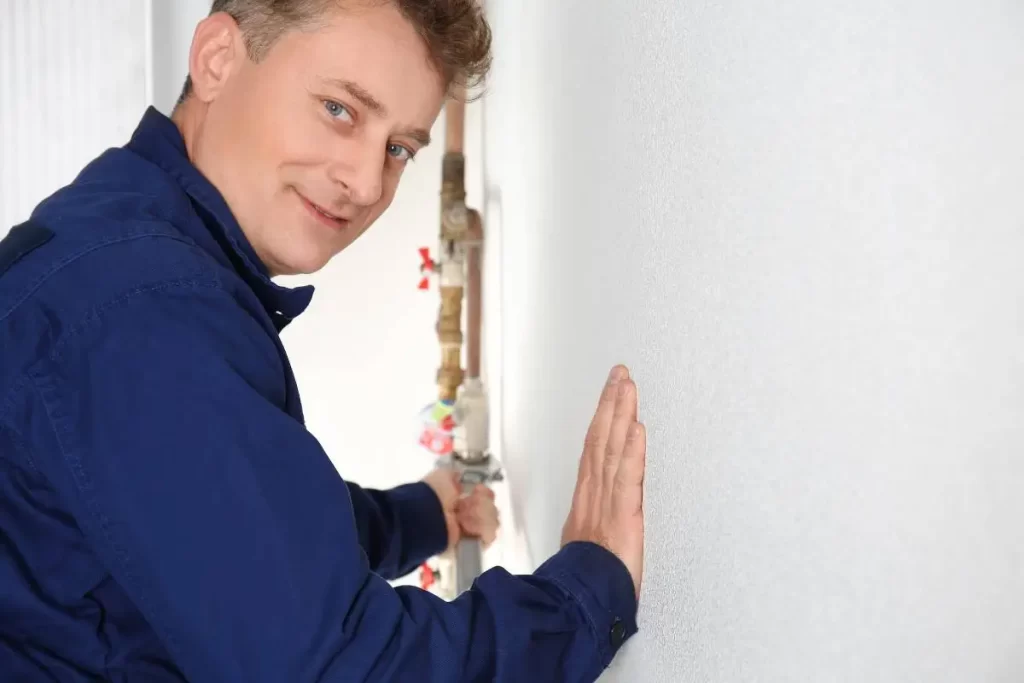
If your attempts to fix the burst pipe aren’t successful or if the damage is more extensive than you anticipated, it’s time to call in the professionals. A plumber can assess the situation and suggest the best course of action.
In some cases, they might recommend pipe relining, a more expensive option but one that can provide a long-term solution, lasting up to 50 years. This approach is ideal for severe or recurring burst pipe issues, offering peace of mind that the problem won’t resurface anytime soon.
Also read: How to Fix a Leaking Pipe (DIY)
The Common Causes of a Burst Water Pipe
Now that you know how to fix the issue, let’s discuss the common causes so you can prevent a burst pipe emergency from happening again in the future.
1. Damaged Pipe
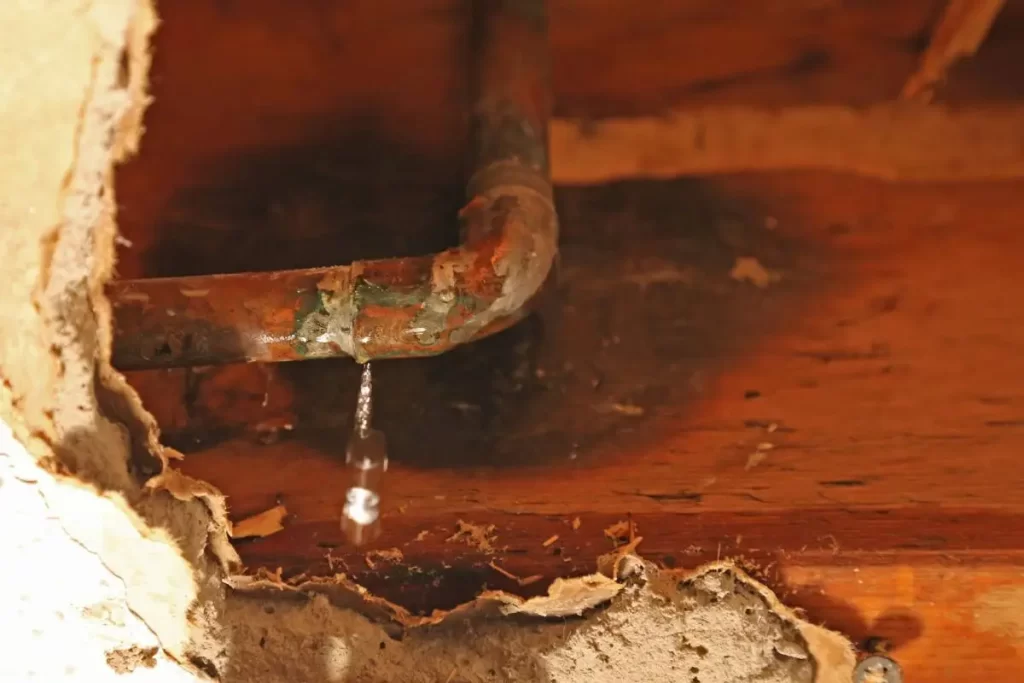
One of the most common causes of a burst pipe is damage to the pipe itself. Pipes can become weakened over time due to corrosion, wear and tear, or accidental impact.
Corrosion is particularly common in older pipes made of materials like galvanised steel, which can rust over time. When a pipe is weakened, it’s more susceptible to bursting, especially under pressure.
2. Roots in Pipe
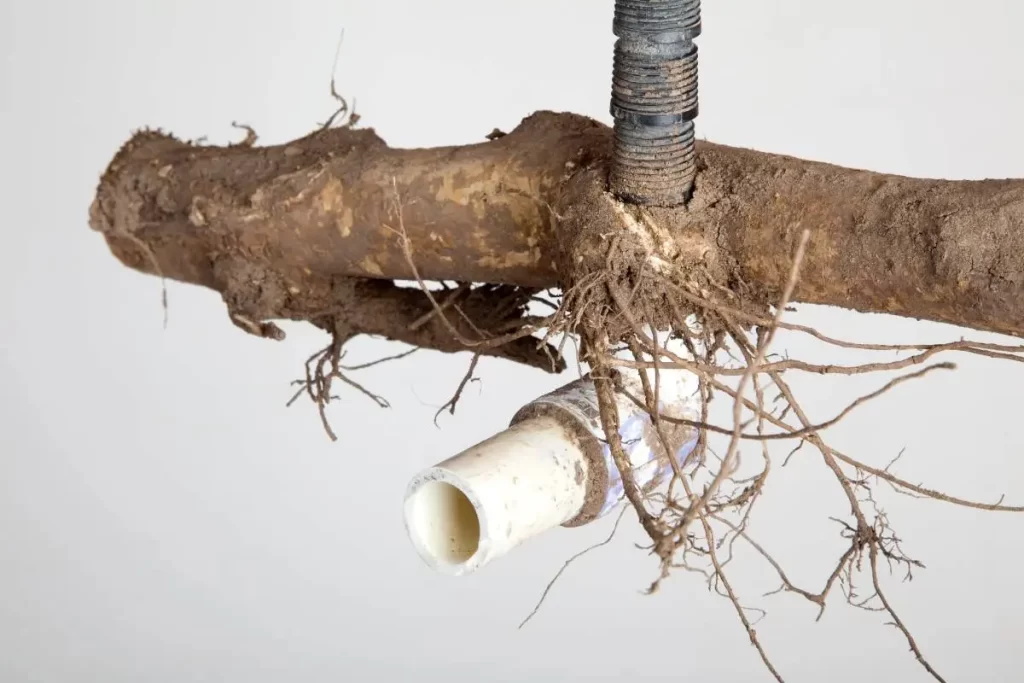
Tree roots are another frequent culprit behind burst pipes. As trees grow, their roots naturally seek out moisture, which often leads them to water pipes. Once roots infiltrate a pipe, they can cause significant blockages or even cracks, leading to a burst pipe.
This is particularly problematic in older homes with clay or cast iron pipes, which are more vulnerable to root invasion.
3. Freezing Temperatures

Another major cause of water pipe bursts is freezing temperatures. During cold weather, water inside the pipes can freeze and expand, putting immense pressure on the pipe walls. If the pressure becomes too great, it can cause the pipe to crack or burst.
This is a common issue in areas with harsh winters, especially in homes with poorly insulated pipes.
4. High Water Pressure
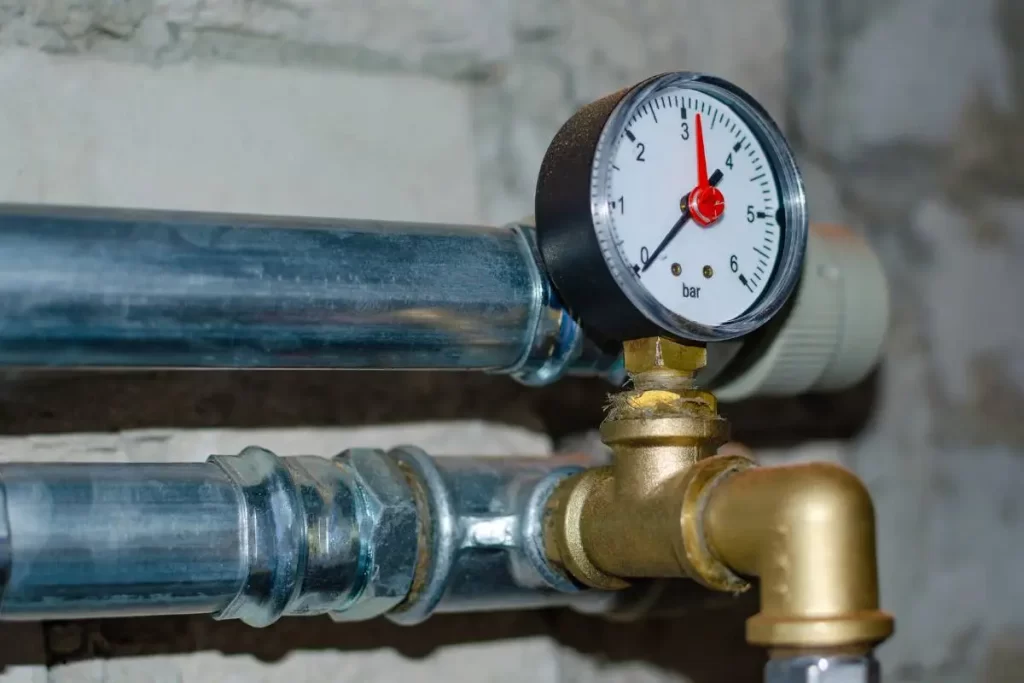
High water pressure can also lead to burst pipes. While a certain level of pressure is necessary to ensure water flows properly through your home’s plumbing system, excessively high pressure can strain the pipes, causing them to weaken over time.
Eventually, this can result in a burst pipe, especially if the pipe is already compromised by age or damage.
5. Poor Installation or Repairs
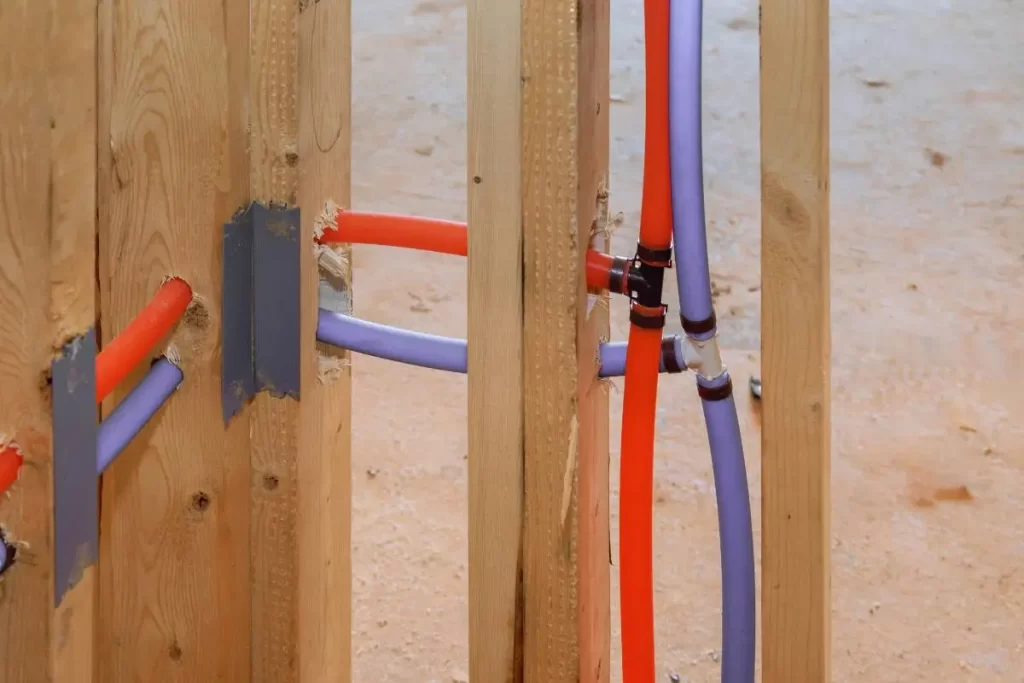
Sometimes, the cause of a burst pipe can be traced back to poor installation or previous repairs. If pipes aren’t installed correctly or if substandard materials are used, the plumbing system may not hold up under normal usage. This issue leads to leaks, cracks, or even a burst pipe emergency.
Conclusion
Want to avoid the stress from dealing with a burst pipe? Don’t worry—Neighbourhood Plumbing is here to help. We’re only a call away and ready to assist you with fast, reliable service to get your home back in order.
Call us today and relax!
About the Author
From unclogging the toughest drains to repairing leaking toilets, Ricky is a seasoned plumber who has brought his craftmanship to homes across Melbourne. He is passionate about sharing plumbing tips just as much as he is about fixing your plumbing issues. So, when your taps or pipes begin leaking, you know who to call.


